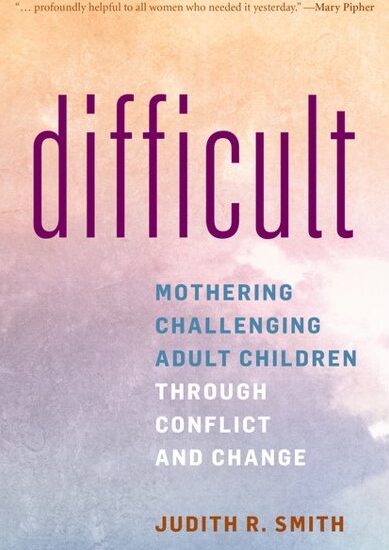By Jim Stubenrauch
What’s especially exciting about writing with a group of people in a workshop setting is the opportunity it affords to witness others giving their stories form and bringing them into the open, in real time. Sometimes, it’s astonishing what people can produce in just a few minutes.
I recently teamed up with two colleagues, nurse practitioner and nursing educator Dr. Kenya Beard and poet and writing teacher Joy Jacobson, to present Narratives of Diversity: Encouraging Cultural Responsiveness, a daylong workshop held at the CUNY Graduate Center. The goal of the day was to achieve a better understanding of how students, patients, and professional colleagues experience themselves and others in increasingly diverse health care and educational environments. Participants explored their own experiences of diversity and marginalization through guided creative writing exercises and discussion and, together, we sought strategies that all of us could use to become more culturally responsive, both personally and in our professional roles. (To learn more about Kenya’s work in promoting multicultural education and reducing health disparities, see Joy’s interview with her, here.)
One of the workshop participants, Shannon Richards-Slaughter, an educator and writer from Charleston, South Carolina, wrote a first draft of the following piece during a 20-minute guided writing session and then shared it with the group. The prompt was: “Write about a time when you felt marginalized or witnessed someone else being marginalized.” Shannon’s story isn’t primarily about something that occurred in an institutional or professional setting; rather, she used the idea of marginalization to examine her increasingly tenuous connection to her mother, who is slowly withdrawing from her relationships with friends and family. Anyone who has provided long-term care for an aging loved one will recognize the complex, sometimes conflicting emotions Shannon expresses in this poignant and heartfelt piece. Our great thanks goes to Shannon for sharing this with HealthCetera‘s readers.
Heart on Automatic
We have marginalized my mother. Or has she marginalized us? She’s 96 and stays all day in her bedroom, our former guest bedroom. That’s how she acts. Like a guest. Like someone just passing through. Physically, she’s fine, her doctors say: blood pressure, pulse, and—now, with the pacemaker—heart. All fine. She takes less medicine than my husband and I do. But she is far away, and in some ways, we have let her go. At first, I took her to all the specialists—the gerontologist, the neurologist, the psychologist, the psychiatrist. There were work-ups and tests and consultations:
She might be depressed.
No, it’s not Alzheimer’s.
It could be an eating disorder associated with the elderly.
No, it’s atrophy of the capillaries of the brain.
It’s not dementia. We can’t say it’s dementia.
Maybe, it’s a form of dementia…
She’s traveled so far away from her family, her friends, to live with us. She’s obsessed with finding out where she is, sometimes asking me, “What happened to the house?” Meaning the house she’s lived in for over fifty years, 1004 North Michigan Avenue in Atlantic City.
“What happened to the house?”
As if the house has disappeared because she can’t see it. As if it doesn’t exist because she’s not in it. It’s still there, we tell her. You’re just staying with us now. We beg her to come, sit with us around the kitchen table, have dinner with us. Please. Don’t sit over there on the sofa by yourself. Join us, be with us.
“I’m ruining your life,” she says. “I’m making trouble.”
And she is and she does when she refuses to take her medicine, to get dressed, to eat anywhere but in her bedroom, to talk to her sisters long-distance on the phone. She is so unhappy and so angry. We take her back then, to 1004 North Michigan Avenue, because maybe, just maybe, if she is in her own home, back among her own surroundings, siblings, friends, maybe then she’ll do better. But she is unhappy and angry and won’t eat and doesn’t like the lady who comes in to help her.
We bring her back. This time to Ashley River Plantation, an assisted living facility which is supposed to give her independence and dignity and where she stays in her room all day and asks, “What is this place again? Am I on assistance?”
Finally, it’s back at our house when she asks, “Where am I now?”
“Charleston,” I say.
“But where in Charleston?”
“My house.”
She turns away. Swimming out to some other shore. And we have let her go. I have let her go.
I take her meals up to the room and tell her what’s on the plate. I turn on the lights so she won’t be always in the dark. Every now and then I take her to the beauty parlor and the podiatrist.
She will not go to church.
I take her to the doctor where they tell us the same things:
Get her to eat.
Make sure she takes her meds.
Keep her active.
But we’ve heard it all before, and my heart is on automatic, a remorseless machine pumping energy into my care of her. I feel the line attaching us grow increasingly slack. She is beyond my reach.
Shannon Richards-Slaughter is a faculty member in the Writing Center/Center for Academic Excellence at the Medical University of South Carolina. She regularly meets with health professions students from all six of the university’s colleges to review a variety of writing assignments, including literature reviews, research papers, papers for publication, capstone projects, dissertations, scientific papers, and grant proposals. Nursing students make up the majority of her Writing Center appointments. In another life, she has been a playwright and a fiction writer, most notably winning the New Professional Theatre 2005 Writer’s Festival Award and the Ms. Magazine College Fiction contest.
Jim Stubenrauch is a senior fellow at the Center for Health, Media & Policy and teaches writing at the Hunter-Bellevue School of Nursing.











djmasonrn / August 1, 2014
Thankyou for sharing this. It gave me another perspective on family caregiving and aging. Beautitudes is a model of care for people with dementia that is based on the philosophy of the goal of care is for the person to be happy and comfortable. I wondered whether it’s a framework that can help someone like Shannon to find peace with her mother’s withdrawal, even though she hasn’t been diagnosed with dementia. The “letting go” that Shannon so poignantly describes is probably the first step in adopting this frame. Thank you for helping me to think more about the complicated emotions that accompany aging and caregiving.
/
spinal traction philadelphia / August 7, 2014
Truly appreciate this lovely article. Thank you for sharing Shannon’s story. It is very insightful and helped me appreciate and understand more about family care giving. Thanks again!
spinal traction philadelphia
/
Jim Stubenrauch / August 7, 2014
Thanks to djmasonrn and spinal traction philadelphia for your nice comments. We knew we wanted to publish Shannon’s story on the blog as soon as we heard it!
For those interested in the Beatitudes model of care, here’s a New Yorker article by Rebecca Mead:
http://www.newyorker.com/magazine/2013/05/20/the-sense-of-an-ending-2
JS
/